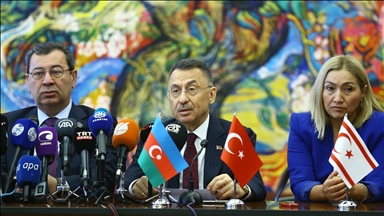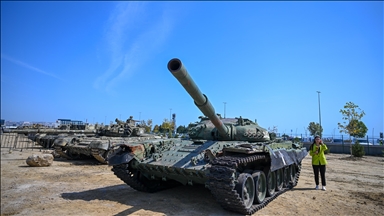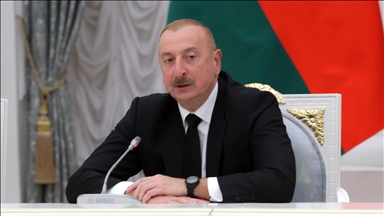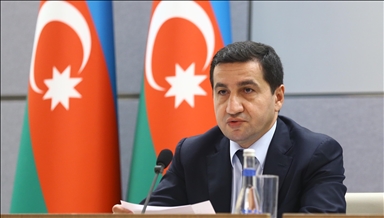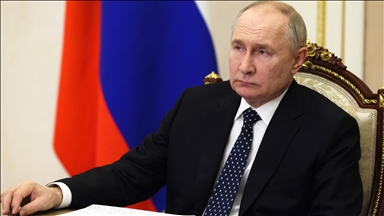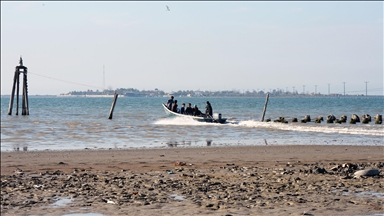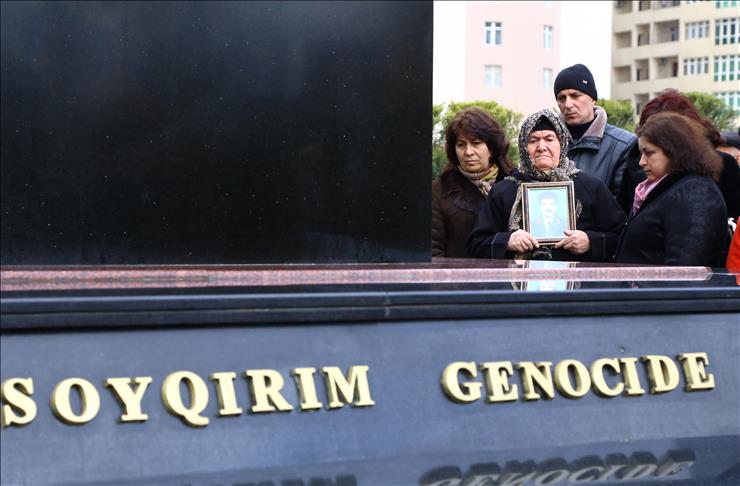
By Ilgin Karlidag
BRUSSELS
The failure of the international community to recognize the 1992 Khojaly massacre, in which hundreds of Azeris are said to have been slaughtered by Armenian militia, shows several countries are being selective in denouncing crimes against humanity, human rights experts have claimed.
The UN’s five permanent members -- the United States, the United Kingdom, France, China and Russia -- were singled out for criticism by some activists and human rights experts who gathered at the University of Ghent in Belgium on Monday to commemorate the Khojaly massacre.
Bashy Quraishy, secretary general of the European Muslim Initiative for Social Cohesion, told the conference: "Khojaly refugees have written to the UN, European Union and the OSCE (Organization for Security and Cooperation in Europe) for years without any outcome and these international organizations remain indifferent to the disaster."
The massacre on February 25-26, 1992, is regarded as one of the bloodiest and most controversial incidents of the war between Armenia and Azerbaijan for control of the Nagorno-Karabakh region, the legacy of which still poisons relations between the two neighbors today.
- 'Double standards'
According to Human Rights Watch, Azeri civilians fleeing fighting around the strategic town of Khojaly in Nagorno-Karabakh during the winter of 1992 were "cruelly fired upon," allegedly by Armenian militia reportedly with help of the Russian 366th Motor Rifle Regiment.
"At least 161 people are known to have been murdered in this incident," the rights group has previously said in a statement.
But Azerbaijani authorities say 613 civilians -- including 106 women and 83 children -- were killed in the incident and Armenians also committed killings elsewhere in the enclave.
Quraishy accused the international community of applying double standards when it comes to recognizing genocide and crimes against humanity.
He said: "The sad thing is that many countries -- including some European ones -- are very selective in their denunciation of genocide, massacres or crimes against humanity.
"For example, killings by terrorists are acted upon quickly, while there are no consequences when states commit acts of terrorism."
Jan Dumolyn, professor at the Department of History at the University of Ghent said: "To define exactly what genocide is … these are endless discussions; how many people do you have to kill in order for it to be genocide?"
- 'Physical destruction'
The UN Convention on the Prevention and Punishment of the Crime of Genocide states: "Any of the following acts committed with intent to destroy, in whole or in part, a national, ethnical, racial or religious group:
"These acts include: killing members of the group; causing serious bodily or mental harm to members of the group; deliberately inflicting on the group conditions of life calculated to bring about its physical destruction in whole or in part; imposing measures intended to prevent births within the group; forcibly transferring children of the group to another group."
However, Quraishy criticized the use of veto power by the UN’s five permanent members which prevents other countries taking part in discussions and decisions on such subjects.
Quraishy said: "We need a new set-up for the United Nations … so that when an issue is discussed then the whole world is involved.
"But I cannot see anything changing in the near future, as these five powers have veto power."
Anadolu Agency website contains only a portion of the news stories offered to subscribers in the AA News Broadcasting System (HAS), and in summarized form. Please contact us for subscription options.


